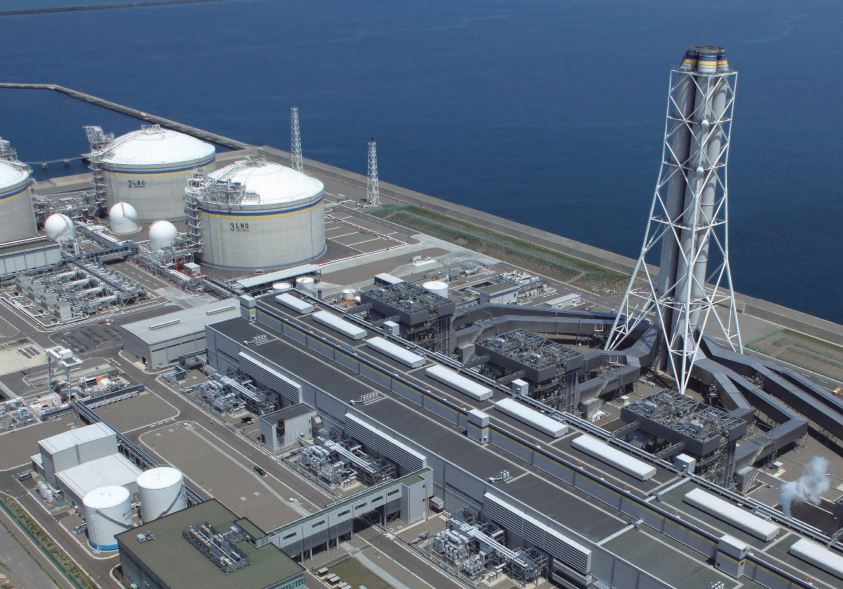Taiwan's Nuclear Phaseout: The Rise Of LNG Imports

Table of Contents
The Rationale Behind Taiwan's Nuclear Phaseout
Taiwan's decision to phase out nuclear power is a multifaceted issue stemming from a confluence of public opinion, safety concerns, and the need for alternative energy sources.
Public Opinion and Anti-Nuclear Sentiment
The 2011 Fukushima Daiichi nuclear disaster in Japan profoundly impacted public opinion in Taiwan. The increased awareness of potential nuclear risks fueled widespread anti-nuclear protests and significantly intensified public pressure on the government.
- Increased public awareness of nuclear risks: The Fukushima incident highlighted the potential for catastrophic accidents, even in advanced nuclear facilities.
- Anti-nuclear protests: Large-scale demonstrations and sustained public campaigns demanded the closure of Taiwan's nuclear plants.
- Political pressure on the government: The strong anti-nuclear sentiment forced the government to address public concerns and reconsider its nuclear energy policy.
Safety Concerns and Aging Nuclear Plants
Taiwan's existing nuclear power plants are aging, raising serious safety concerns and increasing maintenance costs. Securing long-term operation permits has become increasingly difficult, further contributing to the decision to phase out nuclear energy.
- Maintenance costs: The cost of maintaining and upgrading aging reactors has become prohibitively expensive.
- Potential for accidents: The risk of accidents increases with the age and operational lifespan of nuclear power plants.
- Difficulty in securing long-term operation permits: Regulatory hurdles and public opposition make obtaining permits for continued operation increasingly challenging.
The Search for Alternative Energy Sources
With the phasing out of nuclear power, Taiwan needed to find reliable replacement energy sources to ensure a stable electricity supply. This has led to a diversification of energy sources, with a focus on renewables and, in the interim, an increased reliance on fossil fuels, primarily LNG.
- Diversification of energy sources: Taiwan is exploring a mix of renewable and non-renewable resources to ensure energy security.
- Focus on renewables: Investment in solar, wind, and other renewable energy sources is increasing, albeit at a slower pace than LNG imports.
- Increased reliance on fossil fuels in the interim: LNG has emerged as the primary bridging fuel to replace nuclear energy in the short to medium term.
The Surge in LNG Imports
The decision to phase out nuclear power has directly resulted in a significant surge in LNG imports, making it a cornerstone of Taiwan's energy strategy.
LNG as a Transition Fuel
LNG is considered a transition fuel, offering a relatively cleaner and more flexible alternative to coal during the energy transition. Its lower carbon footprint compared to coal, alongside its flexibility in power generation, makes it an attractive option for Taiwan.
- Lower carbon emissions compared to coal: LNG combustion produces significantly fewer greenhouse gas emissions than coal.
- Flexibility in power generation: LNG-fired power plants can adjust their output more readily to meet fluctuating electricity demand.
- Relatively quick deployment: Compared to renewable energy projects, LNG infrastructure can be built and deployed more rapidly.
Infrastructure Development
To accommodate the increased LNG imports, Taiwan has made substantial investments in developing the necessary infrastructure, including new import terminals, pipelines, and storage facilities.
- Expansion of port facilities: Major ports have been upgraded to handle the increased volume of LNG shipments.
- Construction of pipelines and storage tanks: Extensive pipeline networks and strategically located storage tanks ensure reliable LNG supply.
- Investment in regasification plants: These plants convert liquefied LNG back into its gaseous state for use in power generation.
Supplier Diversification and Geopolitical Implications
Taiwan is actively working to diversify its LNG sources to mitigate the geopolitical risks associated with relying heavily on any single supplier. This strategy is crucial for maintaining energy security and navigating complex international relations.
- Negotiations with various LNG exporters: Taiwan is actively engaging with multiple LNG-producing countries to secure diverse supply chains.
- Risks associated with reliance on specific countries: Over-dependence on a single supplier could leave Taiwan vulnerable to political or economic pressures.
- Impact on international relations: Taiwan's LNG procurement strategy plays a significant role in its foreign policy and international relations.
Challenges and Concerns Associated with LNG Reliance
Despite its benefits, Taiwan's growing reliance on LNG is not without its challenges and concerns.
Price Volatility and Energy Security
The global LNG market is characterized by price volatility, which poses risks to Taiwan's energy costs and security. Fluctuations in global prices can significantly impact electricity costs for consumers and the overall economy.
- Vulnerability to global price shocks: Unexpected price increases can strain the economy and potentially lead to energy shortages.
- Need for hedging strategies: Effective hedging strategies are crucial to mitigate the impact of price volatility.
- Impact on electricity prices for consumers: Price fluctuations in the global LNG market directly affect electricity tariffs paid by consumers.
Environmental Considerations
While LNG is cleaner than coal, its increased consumption still raises environmental concerns, particularly regarding greenhouse gas emissions and methane leaks.
- Methane leaks: Methane, a potent greenhouse gas, can leak during LNG production, transportation, and storage.
- Carbon footprint of LNG transportation: Shipping LNG across vast distances contributes to the overall carbon footprint.
- Efforts to reduce emissions through carbon capture technology: Investment in carbon capture and storage technologies is essential to minimize the environmental impact.
Long-Term Sustainability
The long-term sustainability of relying heavily on LNG as a transition fuel is questionable, given Taiwan's commitment to reducing carbon emissions. Accelerating the development of renewable energy and transitioning to a low-carbon energy system is paramount.
- Need for accelerated development of renewable energy sources: A faster transition to renewable energy is crucial to achieve long-term sustainability goals.
- Transition to a low-carbon energy system: A comprehensive strategy is needed to shift from fossil fuels to a decarbonized energy system.
- Integration of smart grids: Modernizing the electricity grid with smart grid technologies can optimize energy distribution and integrate renewable sources.
Conclusion
Taiwan's nuclear phaseout has undeniably accelerated the country's reliance on LNG imports. While LNG offers a relatively cleaner and more flexible alternative to coal during the transition, it also presents significant challenges related to price volatility, energy security, and environmental concerns. A successful energy transition for Taiwan requires a balanced approach, encompassing diversification of energy sources, accelerated development of renewable energy, and robust infrastructure improvements. The future of Taiwan's energy security hinges on effectively managing the complexities of its ongoing energy transition and strategically planning for a future beyond its current dependence on LNG imports. Further research and analysis into sustainable energy solutions are crucial to ensure Taiwan's long-term energy independence and environmental sustainability. Careful planning and investment in diverse energy solutions are vital for navigating Taiwan's energy future and mitigating the risks associated with its increasing reliance on LNG imports.

Featured Posts
-
 Trumps Canada Comments And Tariffs Spark Debate On Wayne Gretzkys Patriotism
May 20, 2025
Trumps Canada Comments And Tariffs Spark Debate On Wayne Gretzkys Patriotism
May 20, 2025 -
 Nyt Mini Crossword Puzzle Solutions For April 18 2025
May 20, 2025
Nyt Mini Crossword Puzzle Solutions For April 18 2025
May 20, 2025 -
 Arrivee Du Diletta Au Port D Abidjan Un Record Pour La Cote D Ivoire
May 20, 2025
Arrivee Du Diletta Au Port D Abidjan Un Record Pour La Cote D Ivoire
May 20, 2025 -
 Hmrcs New Side Hustle Tax Rules A Us Style Snooping Scheme
May 20, 2025
Hmrcs New Side Hustle Tax Rules A Us Style Snooping Scheme
May 20, 2025 -
 Solve The Nyt Mini Crossword Answers And Hints For March 13
May 20, 2025
Solve The Nyt Mini Crossword Answers And Hints For March 13
May 20, 2025
